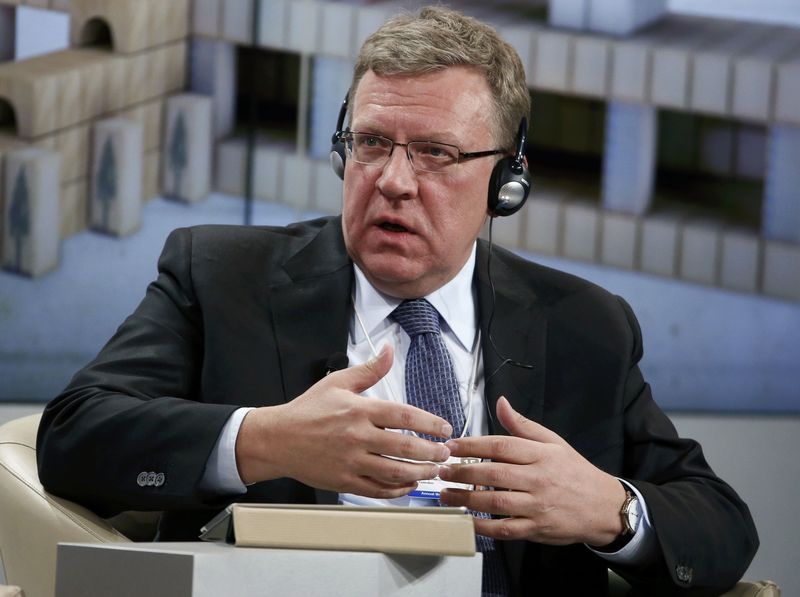By Dmitry Zhdannikov
DAVOS, Switzerland (Reuters) - Russia is starting to see a wave of mass layoffs as a result of the plunging economy and needs to rethink where and how fast it spends its reserves, former finance minister Alexei Kudrin said.
Kudrin resigned from the government in 2011 to protest against soaring military spending, but is believed to still have the respect of and access to President Vladimir Putin.
The rouble has lost half of its value against the dollar since the start of last year as a result of plunging oil prices and Western sanctions tied to the Ukraine crisis, making it very difficult for Russia to borrow from Western capital markets.
"I was predicting tough times, but I had not expected them to be so tough," Kudrin told Reuters on the sidelines of the World Economic Forum in Davos.
"Consumer prices have risen sharply. Large layoffs have begun. The Moscow construction sector has seen 100,000 people being laid off. We see signs of crisis in the auto industry. There will be also a serious slowdown in modernization and deployment of Western technology," he said.
He said the economy would shrink by over 4 percent this year if oil prices remain low. Russia has a relatively small unemployment rate of over five percent.
Under Kudrin, Russia accumulated more than $500 billion in reserves, including around $160 billion in two reserve funds which can be used in difficult times to protect the rouble and the economy.
Earlier this week, Russia's central bank said its gold and foreign exchange reserves had dropped below $380 billion as it continued to protect the currency and authorities spent money on bailing out banks and companies.
With social spending representing a third of the overall budget and military expenditure at 35 percent, Russia is poised to exhaust its two reserve funds in 18 months if oil prices stay at around current levels of $50 a barrel.
Kudrin said Russia needed to urgently cut outlays to make sure it had enough funds to protect the economy for longer.
"If oil stays at $50, our reserve fund shall be spread over three years, while we switch to lower spendings and conduct reforms," he said. A huge military modernization programme should be carried out over 15 years rather 10, which would also save money, he added.

Some European politicians and businessmen have in recent weeks called for a re-engagement with Russia and the easing of sanctions. But Kudrin said the majority of Western business people and public opinion were still against this idea, making the removal of sanctions an unlikely prospect.